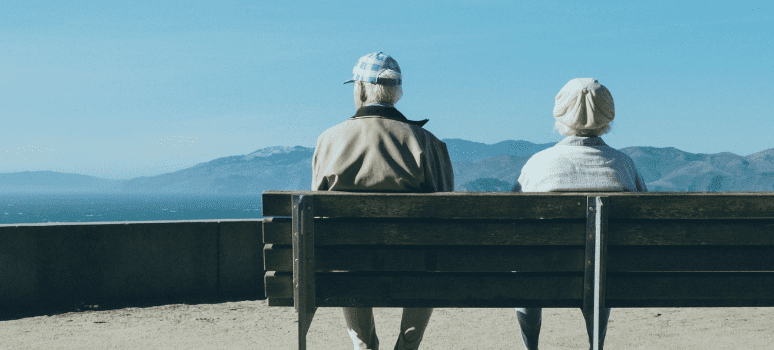
The World Health Organisation defines ageing as the accumulation of a wide range of molecular and cellular damage leading to a gradual decline in physical and mental capacities and an increased risk of disease. This is true, but can we get through this period in the best possible way? Although we cannot prevent physiological ageing, we can combat pathological ageing.
That prevention and healthy habits are the best way to keep disease at bay is a widespread idea. Although we cannot guarantee that health can be preserved as there are factors that we do not control (such as genetics or environmental factors), Good habits can make our ageing healthier and prepare us to cope better with disease.
The most common pathologies of old age are related to hearing loss or cataracts, back and neck pain, osteoarthritis, diabetes, depression and dementia and pneumopathies. A single person may experience several of these conditions at the same time and it is important not only the medical treatment but also the environment in which older people live.
In any case, we can look at guidelines that healthy adults can follow in order to live the last years of life to the full.
Maintain the balance of your gut flora
The microorganisms of the gut microbiota change in old age and bacteroides, lactobacilli or bifidobacteria give way to enterobacteria or clostridium perfringens, which are responsible for infectious diseases when the immune system is weakened.
Dietary changes, sedentary lifestyles or age-related alterations in gut function may be causing this imbalance in the microbiota.However, they are also associated with specific disorders such as food intolerances or stress and pathologies such as cardiovascular diseases, colon and rectal cancer or hypertension.
What can we do to compensate for the altered micro-organisms in the gut? Probiotic foods stimulate the growth of beneficial bacteria and probiotics contain these living organisms. Although not everything is known about them, they are research is underway to find out exactly how these foods helpHowever, it is investigating the "signalling pathways by which the beneficial effects of these foods are promoted, which would facilitate their more appropriate use to regulate immune-related disorders," explains researcher Eduardo Arranz, head of the IBGM's Mucosal Immunology Laboratory.
In addition, it has been discovered how an immune system dysfunction can affect an intestinal bacterium which produces reactive oxygen species that damage cells and cause many age-related pathologies. Research led by Igor Iatsenko, a scientist at the Bruno Lemaitre Laboratory of the Global Health Institute of the Ecole Polytechnique Supérieure de Lausanne (EPFL), has identified "a specific member of the microbiota and its metabolite that may influence ageing in the host organism," says Iatsenko, who acknowledges that "a better understanding of the metabolic interactions between microbes and hosts during ageing is needed to develop strategies against age-related pathologies".
Control your diet
In old age, there are structural and functional alterations in the body's tissues and the consequence is that we metabolise food differently, we may have swallowing problems and less sensitivity in the taste buds, among other things. In addition, from the age of 70 onwards we consume less energy, so food intake must be reduced.
It is essential to prioritise fundamental nutrients such as calcium and vitamin D, bearing in mind that lactose intolerance is more common at this age. Calcium can be found in foods such as cheese, almonds and hazelnuts, sardines in oil, yoghurt, prawns and clams, chickpeas and white beans, among others. Vitamin D is present in oily fish and egg yolks.
On the other hand, eating fruit, vegetables and pulses helps to maintain hydration and bowel function. In addition, olive oil or nuts can increase energy intake without increasing the volume of food consumed.
It is also important to keep the immune system strong by nourishing it with vitamins A, B, C and E.
In addition to these general guidelines, at Biosalud we take into account the nutritional needs according to each person's DNA so that any deficiencies that may arise in each case can be made up for.
Sport as therapy
Physical exercise slows down ageing. This statement has a scientific basis and is directly related to coenzyme Q10, one of the blood parameters that prevents cellular oxidative stress and thus the effect of the passage of time.
The Study of the relationship of physical activity and ageing with biochemical parameters and antioxidants in blood.supported by the Andalusian Centre for Developmental Biology and funded by the Andalusian Centre for Sports Medicine of the Andalusian Regional Government, explains how oxidative stress on cells can be reduced by up to 15 per cent in the elderly population when they engage in moderate-intensity sport.
"This is the first time that the beneficial effect of physical exercise on coenzyme Q10 levels has been shown in humans and used as a therapy against the decline in antioxidant activity associated with ageing and in the prevention of cardiovascular or chronic complications associated with ageing," explains Jesús del Pozo-Cruz.
Another important factor is to reduce stress, as it has an influence on and telomere shortening.

